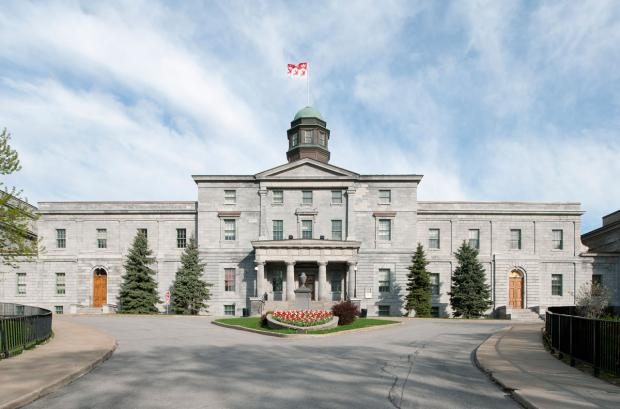It was not long after touring McGill’s campus last April that I asked my parents to put down my admission deposit. As my time as a high school senior wound to a close and my life as a freshman began, I was given my first initiation into life as a McGill student: my very own university email. I was officially part of the college community, and I had an Outlook account to prove it.
My anticipation and excitement was tarnished somewhat when some of the first emails I received on that account were memos from the McGill Administration discussing the handling of sexual assault allegations and inappropriate faculty-student relationships. These carefully-worded emails sought to quell student outrage for sexual misconduct allegations at McGill by promising the appointment of a special investigator, an ad hoc committee focused on intimate relationships between teaching staff and students, and the development of the Guidelines on Intimate Relationships Between Teaching Staff and Students. Despite the assurance these emails strived to provide, the news came as an unfortunate and uncomfortable first impression of faculty-student relationships on campus, and of McGill as a whole.
Prior to receiving those email updates, my perception of McGill was characterized by admissions packets and campus tours that presented an idealized version of university. It was all quidditch, exchange programs, accessible faculty, and engaging classes, with little mention of the sorts of tensions that persist on campus and the bureaucratic processes about which we hear constantly. Receiving those memos from the administration demonstrated a view of what life at McGill—and at universities in general—is really like: a place with amazing social, academic, and extracurricular opportunities, but one that is fraught with heavy—and frankly, frightening—issues.
Receiving those memos from the administration demonstrated a view of what life at McGill—and at universities in general—is really like: a place with amazing social, academic, and extracurricular opportunities, but one that is fraught with heavy—and frankly, frightening—issues.
Of course, I was aware of sexual assault on college campuses before starting my undergrad, but McGill’s emphasis on the matter seemed especially daunting. The consistency and urgency of the emails made sexual assault seem like an unavoidable issue to any incoming student. The particular allegations made me believe that my arrival at McGill would also be my arrival into an ongoing and tense conversation.
However, by the time I arrived in Montreal in late August, information and news around these allegations had somewhat slowed and the vague memos seemed to come to a halt. With little information to supplement the spring emails, I confronted a fast-approaching school year with little concrete understanding of the nature and severity of this issue on campus.
The topic of sexual assault at McGill remained shrouded in mystery even as the new school year began. I felt as though there was an ominous spell cast over the entering first-years, as we were forced to navigate university at a time when the previous year’s sexual assault issues still seemed unresolved. There was a lack of clear acknowledgement of the problem during orientation week or thereafter, which prevented students from freely asking questions. When I brought up this topic with other first-years, there was a similar sense of confusion and discomfort. Some had not even heard about the allegations and subsequent actions taken by McGill students and faculty. Only the older students seemed to have an informed view of last year’s events, effectively excluding most first-years from fully taking part in campus discourse.
It was through students in higher years that I learned that the issue of sexual assault on campus had not been allowed to fizzle out over the summer, as the tapering emails and quiet campus had implied. Their perspectives as survivors and as activists came to me piece by piece, allowing me to partially understand the magnitude of past events and the effect they had on the student body of which I am now a part. Through this understated trail of contacts, articles, and conversations, I managed to get my own bearings and re-interpret some of those coded emails. Still, when the school year began, the absence of palpable recognition and education on the subject prevented me—and continues to prevent some of my peers—from coming to terms with those realities and internalizing the need for change.
If the McGill administration truly cares about ending sexual harassment and abuse of power on our campus, alienating (and scaring) its first-year students only harms their cause.
It is likely that almost all McGill students agree that sexual relationships between teaching staff and students are inappropriate and ought to be outrightly prohibited. However, about one quarter of our school’s undergraduate population remains too ill-informed on the issue to stake that claim loudly, having been inundated with concerning updates before even attending their first class, and receiving no supporting, contextual background upon arriving at university. If the McGill administration truly cares about ending sexual harassment and abuse of power on our campus, alienating (and scaring) its first-year students only harms their cause.
Through this experience, I’ve learned that the core of my “real world” exposure to university life is less about the presence of sexual assault at McGill. Instead, it’s about the subtler dangers of administrative failure and how a lack of information to a vulnerable group of students can help perpetuate one of our university’s most pernicious problems. As long as the issue of sexual assault remains partly hidden from first-years, the university community as a whole cannot fully move past it.








